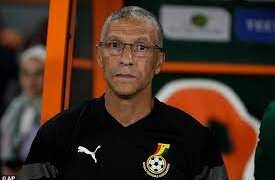Amnesty International (AI) Ghana has been asked to be proactive in its dealings as a pressure group to curb human rights abuses.
The Executive Director of Crime Check Foundation (CCF), Ibrahim Oppong Kwarteng said AI Ghana’s presence has been reactive allowing rot in the justice system especially in curtailing abuses.
According to Mr. Kwarteng who doubles as the Ambassador Extraordinaire of Ghana Prisons, there have been grave human rights abuses in prisons across the country hence the need for AI Ghana to rise to its mandate to help check such excesses.
He called on AI to be proactive in helping curb abuses in society rather than becoming diplomatic in doing their job.
“Apart from talking about the death penalty, there are lots of entrenched provisions in the Constitution that must be expunged. We know the work of Amnesty International, so my appeal is for you not to over-concentrate on the death penalty. It appears you have become too diplomatic and I do not know if it is because of the nature of your job. At times demonstrations to cause fear is what governments understand. I am not calling for an uprising. You need to shake your tables a bit. You have become too gentle; a naming and shaming organization is not working these days.
“I want to urge you to go to the prisons to talk to the inmates. If you visit the condemned block, some of the inmates are very old and some may have not even committed a crime and I do not know what Amnesty is doing about that. If the purpose of imprisonment is to reform and rehabilitate, then does a blind 70-year-old man who cannot see but is in prison constitute a threat to society? What is Amnesty doing about such people because they are languishing in jail? I will urge Amnesty International to go there and listen to the concerns of such people and if possible appeal or advocate for the review of their sentence. I want you to look at the broader picture whiles we push for the abolishment of the death penalty,” he charged AI Ghana.
Amnesty International Ghana’s campaign to abolish the death penalty in Ghana until recently, focused mainly on influencing the Executive Arm of Government and the Legislature to abolish the death penalty through the implementation of the Constitution Review Commission’s recommendations.
However, the AI Ghana changed its strategy to an advocacy approach grounded on sound legal advice focusing on amending the Criminal Offences Act, Act 29 (1960) to abolish 96 percent of the provisions relating to the use of the death penalty and the Ghana Armed Forces Act, Act 105 (1962) when it realized that the implementation of the recommendation to abolish the death penalty stalled.
The bill is currently before the Constitutional and Legal Affairs Committee of Parliament after its first reading waiting for a memorandum for the motion to be moved.
By Rudolph Nandi




















































